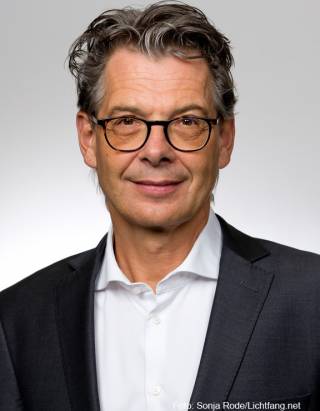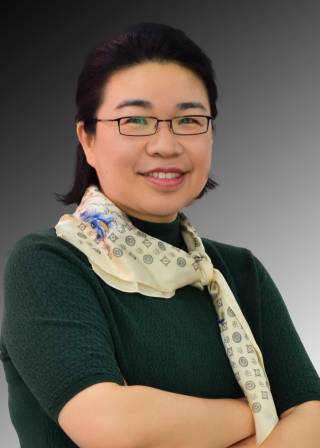Theme: Multiple Competitions in Higher Education
Speaker: Prof. Dr. Georg Krücken, International Center for Higher Education Research (INCHER), University of Kassel, Germany
Time: May, 16 at 13.00-14.30 (Helsinki time)/ 18.00-19.30 (Beijing time)
Abstract:
Competition is a core theme in the sociology of science and higher education as exemplified by classic texts by Robert K. Merton and Pierre Bourdieu. However, more recently one can observe a strong increase in competition, leading to a multiplication of competitions. This observation holds true for very different areas and national higher education systems. Individual and collective actors compete, for example, for scarce material and symbolic resources like research grants, high-quality publications, ranking positions, attention from external stakeholders or societal impact. As a consequence, universities as organizations and academics as individual actors are simultaneously embedded in different, nested, and interdependent competitions, i.e. multiple competitions. But what are multiple competitions, where do they come from and what consequences result? Multiple competitions are not simply ‘out there’, but are rather the socially constructed product that results from the dynamics and interactions of different social systems. In the presentation, a conceptual framework is developed, focusing on the interrelated dynamics of the science system, the state and the university. In an international comparative perspective, empirical evidence is presented and implications are discussed.
Recommended readings:
Bourdieu, Pierre (1975). The Specificity of the Scientific Field and the Social Conditions of the Progress of Reason. Social Science Information, 14(6), 19-47.
Merton, Robert K. (1957). Priorities in Scientific Discovery: A Chapter in the Sociology of Science. American Sociological Review, 22(6), 635-659.
Krücken, Georg (2021). Multiple Competitions in Higher Education: A Conceptual Approach. Innovation: Organization & Management, 23(2), 163-181.
Speake bio:
 Georg Krücken is Professor of Higher Education Research and Director of INCHER, the International Center for Higher Education Research, both at the University of Kassel (Germany). He received his Ph.D. and Habilitation in sociology from Bielefeld University in 1996 and 2004. From 2006 to 2011 he was a full professor of Higher Education Management at the German University of Administrative Sciences Speyer. From 1999 to 2001 and for the summer term 2011 he was a visiting scholar at Stanford University (Department of Sociology and School of Education). He taught as a guest professor at the Institute for Science Studies, University of Vienna, and at the Centre de Sociologie des Organisations, Sciences Po, Paris. He is one of the spokespersons of the research network “New Institutionalism” and member of Academia Europaea. His research interests include higher education research, science studies, organizational studies, and neo-institutional theory. Since 2021, he is spokesperson of the interdisciplinary and DFG-funded research group “Multiple competitions in higher education”.
Georg Krücken is Professor of Higher Education Research and Director of INCHER, the International Center for Higher Education Research, both at the University of Kassel (Germany). He received his Ph.D. and Habilitation in sociology from Bielefeld University in 1996 and 2004. From 2006 to 2011 he was a full professor of Higher Education Management at the German University of Administrative Sciences Speyer. From 1999 to 2001 and for the summer term 2011 he was a visiting scholar at Stanford University (Department of Sociology and School of Education). He taught as a guest professor at the Institute for Science Studies, University of Vienna, and at the Centre de Sociologie des Organisations, Sciences Po, Paris. He is one of the spokespersons of the research network “New Institutionalism” and member of Academia Europaea. His research interests include higher education research, science studies, organizational studies, and neo-institutional theory. Since 2021, he is spokesperson of the interdisciplinary and DFG-funded research group “Multiple competitions in higher education”.
For further information, see http://www.uni-kassel.de/einrichtungen/incher/personen/kruecken-georg.html
Moderator:
 Dr. Po Yang is an associate professor with tenure, chair of Department of Economics of Education and Administration, at the Graduate School of Education, Peking University, and a research fellow at China Institute of Education Finance Research, Peking University. She serves as the vice president of China Association of Education Finance Research, and has been working as consultant for the World Bank, Asian Development Bank, and Ford Foundation. Her main teaching and research areas of economics of education, education finance, and vocational and technical education reform evaluation. She has working experiences in leading research universities in the U.S.A., and the Netherlands. She has published in peer reviewed SSCI journals and received research grants from China’s National Science Foundation and Ministry of Education.
Dr. Po Yang is an associate professor with tenure, chair of Department of Economics of Education and Administration, at the Graduate School of Education, Peking University, and a research fellow at China Institute of Education Finance Research, Peking University. She serves as the vice president of China Association of Education Finance Research, and has been working as consultant for the World Bank, Asian Development Bank, and Ford Foundation. Her main teaching and research areas of economics of education, education finance, and vocational and technical education reform evaluation. She has working experiences in leading research universities in the U.S.A., and the Netherlands. She has published in peer reviewed SSCI journals and received research grants from China’s National Science Foundation and Ministry of Education.

